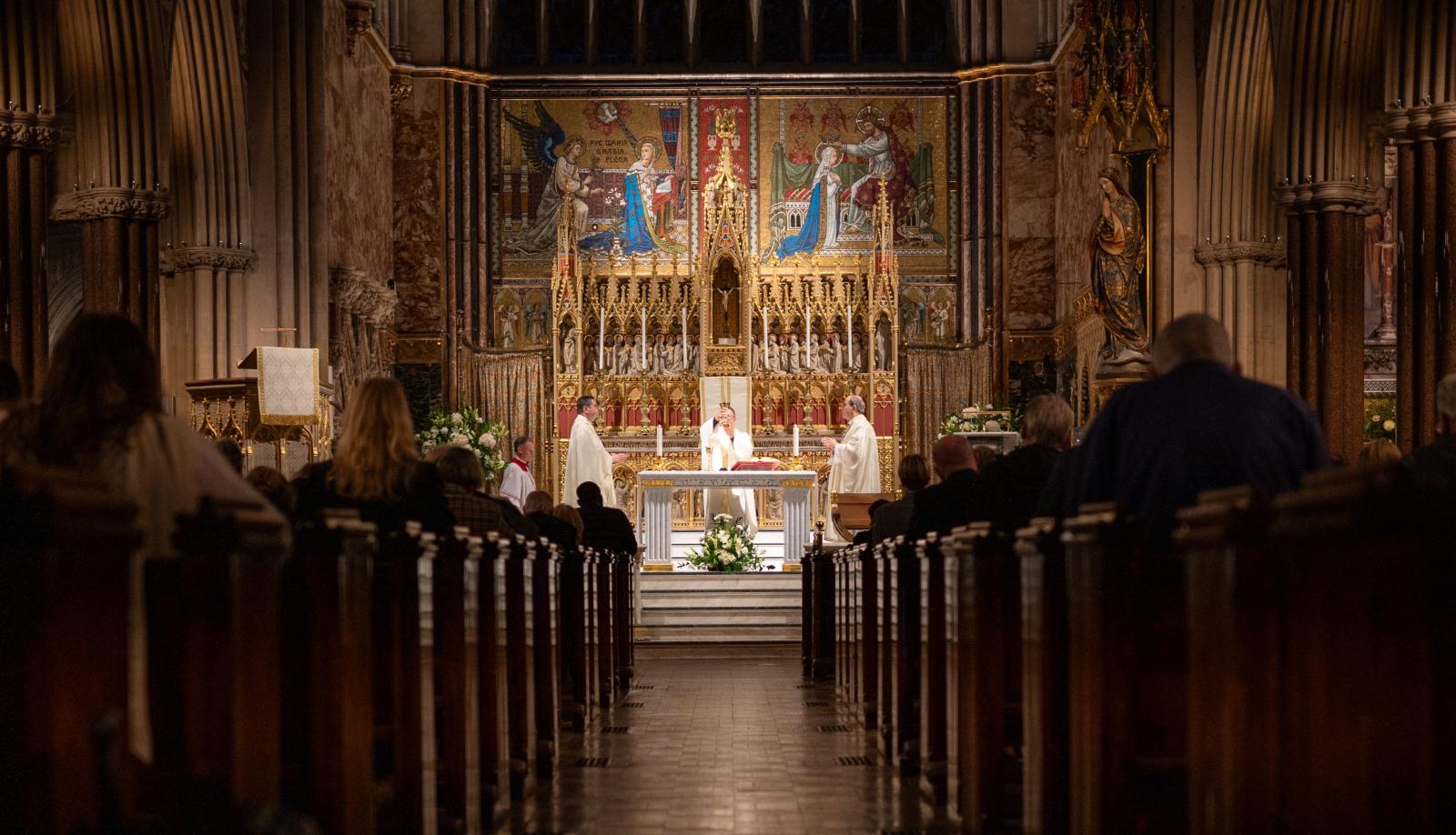Homily given on 15 October at Farm Street at the Mass for the Feast of St Teresa of Avila
'What matters is faith that makes its power felt through love.'
These final words of St Paul’s letter to the Galatians describe the life of St Teresa of Avila; whose advice is practical and instructive for her sisters and their superiors. It is developed in the familiar prayer which paraphrases her writings: ‘Christ has no body now but yours; no hands; no feet; no earth, but yours. Yours are the eyes through which he looks compassion on this world.’
Faith makes its power felt through love. At the same time, acts of generous love deepen our faith; as Jesus commands at the end of this evening’s gospel. Jesus is very practical: ‘give alms from what you have, and then indeed, everything will be clean for you.’ Almsgiving converts the heart and frees it from distracting attachments to have a greater agility to love and know Christ.
To understand St Teresa, we need to visit Spain. I am not a Spanish speaker, but much of St Teresa’s vitality is lost in translation. The passion and energy of words like sabor, taste, and gusto, delight, fill her experience. She tastes and delights in the love of God, which is at the heart of the spiritual experience. She emphasises the need to persevere after the ‘first fervours’ and ‘good spiritual experiences’ to deepen this life by ever more deeply and darkly tasting and delighting in Jesus Christ.
In the dry, barren and parched Spanish landscape, on which the powerful sun beats down, we can appreciate water more fully as a metaphor for God’s grace for which we thirst. The pilgrim on the Camino to Santiago de Compostela knows something of the thirsting and desiring for water when he crosses the high-level flat meseta between Burgos and Leon. It is a dry and arid experience, often accompanied with a strong warm wind which contrasts with streams, drizzle and green vegetation of Galicia; which is similar to a Celtic landscape. Such is the spiritual life.
St Teresa writes of four types of prayer and likens it to ways of receiving the gift of water. Many refer to her stages of prayer, though the word ‘stage’ seems too linear an understanding to capture the mystery which she describes. I suggest the spiritual life is a constant procession between the four ‘types of prayer’. I am sure many of you are familiar with this image.
The beginner’s prayer can be likened to drawing water from a well to water the garden to bring forth flowers. First, collecting water is likened to going to the well to lower and raise the bucket to bring forth the water. Often, the result is very little water; the task is toilsome and laborious, yet necessary if the flowers are to live. Second, the raising of the water from the well is likened to using a windlass, which takes much of the effort out of the heavy work of raising the water and is much easier. God begins to be felt more intimately and frequently. Prayer becomes more about receiving than striving. The growth in prayer leads to a deeper union and likened to the irrigating of the garden by a stream. Joy and love abound, the more and even spiritual ecstasies may be experienced. The mystical and final stage is complete absorption in God’s love leading to surrender and transformation. It is like the gentle rainfall that soaks the garden.
St Teresa recognised that her language might incur the wrath of the inquisitor because of their suspicion of affectivity in prayer and its closeness to the alumbrados, ‘the illuminated’ or ‘enlightened ones’. These people claimed deep personal spiritual experiences and separated themselves from formal religious practices and the Church. St Teresa ensured that she wrote of commitment to the authority of the Church, the sacraments and the Carmelite tradition.
To illustrate this profound link to the tradition, St Teresa writes of receiving holy Communion, which she understands as the most important moment of the day. She warns that ‘the devil will make you think you find more devotion in other things and less in this recollection after communion’ (The Way of Perfection 35.2). Rather, delight in the gift you have received, ‘in no matter how many ways the soul may desire to eat, it will find delight and consolation in the most Blessed Sacrament… there is no need or trial or persecution that is not easy to suffer if we begin to enjoy the delight and consolation of this sacred bread.’ (34.2)
‘Delight to remain with him; do not lose such an excellent time for talking with him as the hour after communion. Remember that this is a very profitable hour for the soul; if you spend it in the company of the good Jesus, you are doing him a great service…’ (34.10)
